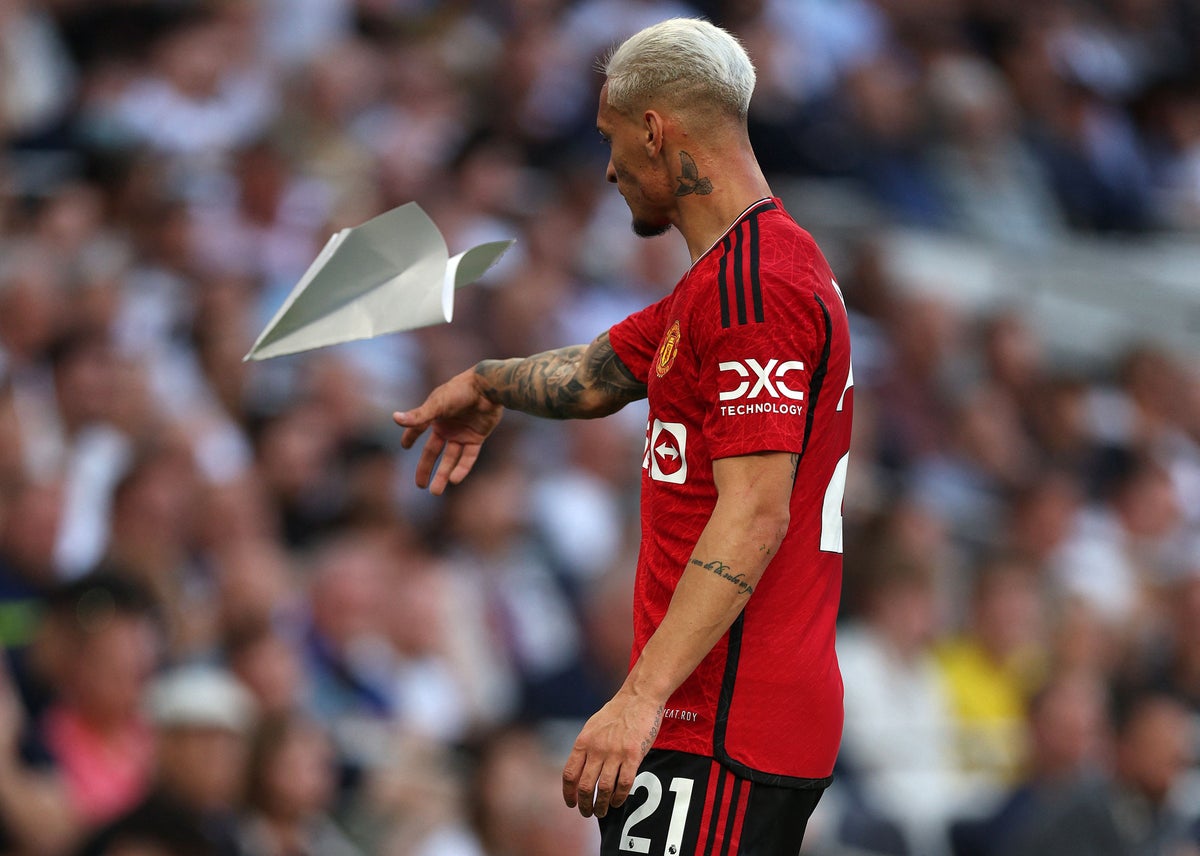
Erik ten Hag has an answer when asked if Manchester United are done in the summer transfer window. “Managers always want more,” he said earlier this month. If it is a generalisation, it is also true in his case: he does tend to want more.
But there are reasons why United have not signed more and why they did not enter the bidding for either Declan Rice or Harry Kane, who commanded nine-figure price tags and, even if attainable, would have swallowed up much of their budget. United’s summer spending so far comes to around £160m, and more than £175m if add-ons for Andre Onana, Mason Mount and Rasmus Hojlund are triggered. Over the course of ten Hag’s reign, their expenditure extends to around £400m. It is not cheap, even for a club whose annual revenue should top £600m or in a division when many another is scarcely a pauper.
There are underlying issues that have limited United’s purchasing power however. They were placed on a Financial Fair Play watchlist by Uefa last September (as were Chelsea, who appear to have very different interpretations of the rules to everyone else) and were fined this summer for breaching FFP over a four-year period.
They signalled an intent, and a need, to keep their net spend this summer to around £120m. At the moment, and despite the departures of Anthony Elanga, Matej Kovar, Alex Telles and Fred, they have exceeded that, even before factoring in the add-ons for their purchases. So when it is said that United need to sell before they can buy, it is based on those calculations.
Within that, there are several elements. The first is that United’s budget was limited from the start after they overspent last summer: the end-of-window trolley dash meant £150m was splurged on Casemiro and Antony. And, like many another issue at Old Trafford, it comes back to the overpriced winger: at £86m, Antony cost perhaps twice his actual value. It was a reason why United could not afford Cody Gakpo in January; while another £40m or so could have altered their plans for this summer.
There is also the reality that United have paid considerably more than they would have hoped for each of their recent signings. Their first bid for Mount was £40m; their opening offer for Hojlund was a little higher. Negotiations can force many a club to pay more, and United are not alone in that, but had they secured their three arrivals for around £120m, it would have created far more scope for a fourth major buy.
It is also a question of net spend. Thus far, United have recouped too little; about £30m. A €10m fee for Fred feels on the small side. They had hoped to sell Eric Bailly, Brandon Williams and Donny van de Beek and, despite talks with Real Sociedad about the Dutchman, have so far sold none; if he goes, there is the risk it is only on loan, just as Williams joined Ipswich on loan.
Donny van de Beek is looking for a new club— (PA)
The enduring uncertainty about Dean Henderson, caused in part by injury, has hardly helped, especially as the goalkeeper looked one of United’s more sellable assets outside the first team.
Then there are the cases of two who have attracted sizeable offers in Scott McTominay and Harry Maguire. The former captain’s decision to reject West Ham could cost United £50m: the £30m transfer fee the Hammers offered for a player who instead could leave on a free transfer in 2025 and two years of wages at around £10m per season, even if that might have been offset by the cost of bringing in another defender.
McTominay also has admirers at West Ham but in looking for £40m, United may have priced him out of a move: West Ham’s two midfield acquisitions, Edson Alvarez and James Ward-Prowse, came for around £30m apiece.
But it may also be a factor that ten Hag did not force out two who could have bolstered his budget. The Dutchman has continually stressed that he sees each as a valuable squad member, that he wants two players for each position and that he would like Maguire to stay and fight for his place. Fair and honest as that may be, United may have been better served by selling one or both and raising revenue.
Sofyan Amrabat, arguably the outstanding defensive midfielder in the World Cup, looks an upgrade on McTominay. Fiorentina’s Morocco international has admirers at Old Trafford, and United’s first two games of the campaign suggest there is a need to bring in someone to partner Casemiro.
And yet, if United’s unconvincing start to another season does not bring a second late-August splurge and they stick to their £120m budget, if there are no significant sales, there is not much scope to strengthen. They can look trapped by parameters set by their recent past, the fees agreed and the deals not done. They are the big spenders struggling to become bigger spenders.







